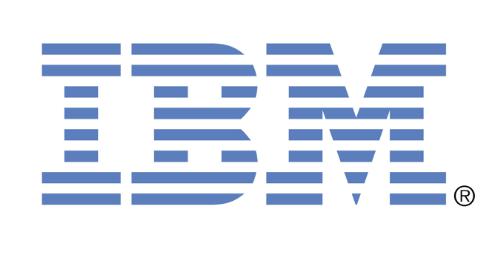 The Open Source Initiative has served as the key steward of open source software since its formation in 1998. In September 2021, the Open Source Initiative board hired Stefano Maffulli as its first Executive Director. I recently interviewed Stefano to learn more about him and his vision for the Open Source Initiative.
The Open Source Initiative has served as the key steward of open source software since its formation in 1998. In September 2021, the Open Source Initiative board hired Stefano Maffulli as its first Executive Director. I recently interviewed Stefano to learn more about him and his vision for the Open Source Initiative.
Blockchain
See the following -
Hyping the Hyperledger with Blockchain Boffin Brian Behlendorf
HfS’ Saurabh Gupta recently caught up with Brian Behlendorf (see bio), the Executive Director of Hyperledger at the Linux Foundation. Brian was a primary developer of the Apache Web Server – the most popular web server on the internet...Two decades after developing the Apache HTTP server that played a key role in giving us the internet and the web, Brian is reimagining our world again with blockchain. We discussed a range of topics around the reality and practicality of blockchain for enterprises along with the one wish that he wants to come true...
- Login to post comments
IBM Watson Health Announces Collaboration to Study the Use of Blockchain Technology for Secure Exchange of Healthcare Data
 IBM Watson Health has signed a research initiative with the U.S. Food and Drug Administration (FDA) aimed at defining a secure, efficient and scalable exchange of health data using blockchain technology. IBM and the FDA will explore the exchange of owner mediated data from several sources, such as Electronic Medical Records, clinical trials, genomic data, and health data from mobile devices, wearables and the “Internet of Things.” The initial focus will be on oncology-related data...
IBM Watson Health has signed a research initiative with the U.S. Food and Drug Administration (FDA) aimed at defining a secure, efficient and scalable exchange of health data using blockchain technology. IBM and the FDA will explore the exchange of owner mediated data from several sources, such as Electronic Medical Records, clinical trials, genomic data, and health data from mobile devices, wearables and the “Internet of Things.” The initial focus will be on oncology-related data...
- Login to post comments
Interoperability As A Service (IAAS): The AI Enabled Blockchain
It’s time for patients to come to terms with the fact that there is no financial incentive for healthcare providers to consolidate and normalize data from disparate providers. Patients must be cautious maintaining their patient records on a blockchain or another platform that cannot be used by other institutions, providers, or entities. Without portability, blockchains will add little value to advance patient medical record mobility. Healthcare providers may discover some indirect benefits from the consolidation of medical records — even records not immediately accessible by patients...
- Login to post comments
Interview with Stefano Maffulli First Executive Director of the Open Source Initiative
- Login to post comments
Intiva Health Incorporates TxMQ Technology for Credential Management Platform
 TxMQ, a full-service enterprise IT solutions and consulting firm, has completed Intiva Health's Hashgraph-powered credential and career management solution, Ready Doc™. Leveraging its development partnership with Swirlds, TxMQ was selected to integrate Hashgraph into Intiva Health's platform, resulting in the first immutable and primary source-verified health care platform specifically for credential and career management-secured and powered by Hashgraph. Intiva's Ready Doc allows for the fastest placement and ongoing credentialing of physicians, nurses, and other licensed medical professionals. This innovative platform reduces the time it takes to verify and onboard new medical practitioners at facilities, ensuring quicker access to services for patients. Read More »
TxMQ, a full-service enterprise IT solutions and consulting firm, has completed Intiva Health's Hashgraph-powered credential and career management solution, Ready Doc™. Leveraging its development partnership with Swirlds, TxMQ was selected to integrate Hashgraph into Intiva Health's platform, resulting in the first immutable and primary source-verified health care platform specifically for credential and career management-secured and powered by Hashgraph. Intiva's Ready Doc allows for the fastest placement and ongoing credentialing of physicians, nurses, and other licensed medical professionals. This innovative platform reduces the time it takes to verify and onboard new medical practitioners at facilities, ensuring quicker access to services for patients. Read More »
- Login to post comments
Investigating Blockchain's Role in Health Info Exchange
Federal regulators are considering the role that blockchain technology could play in advancing the secure exchange of healthcare information, says Steve Posnack of the Office of the National Coordinator for Health IT. Blockchain - an open source distributed ledger technology that's associated with the cryptocurrency bitcoin - "has a lot of different potential implementations, and I think its diversity in how it can be implemented is one of the attractive features. It's not just a one-trick pony," he says in an interview at the HIMSS17 conference in Orlando...
- Login to post comments
Is Blockchain Just Another Buzzword or Can It Transform Healthcare?
If you follow technology in healthcare, you have likely heard of blockchain. But even if you are aware of the platform, it may not have truly hit your radar as possibly having near term impact. In fact Gartner puts blockchain at the peak of inflated expectations – speculating it will be another 5 to 10 years before it reaches mainstream adoption. However, there are a number of stakeholders that are working to defy Gartner’s predictions by putting blockchain into commercial use within the year...
- Login to post comments
McKesson Spinoff Change Healthcare Bets Big on Blockchain
Change Healthcare has signed on with the Linux Foundation's blockchain-focused Hyperledger initiative, the first healthcare organization to join the industry group at the premier level. Other premier members of Hyperledger, which aims to advance blockchain technology across all industries, include Accenture, IBM, Intel and SAP. General members include Kaiser Permanente, NTT Data, VMware and more...
- Login to post comments
National ONC Blockchain Challenge Explores Micro-Identities to Improve Healthcare Interoperability
A lot has been written covering blockchain and healthcare over the past year. From articles on blockchain applications for healthcare to articles by healthcare industry experts exploring blockchain technology as the solution for healthcare interoperability. In early 2016 Forbes published an article titled "How Blockchain Could Change the World." The world is talking about uses of blockchain in the financial services industry. This seems reasonable given that there has been $1.2 billion invested in blockchain startups. The majority of these investments have been within the financial sector...
- Login to post comments
ONC Announces Blockchain Challenge Winners
 The Department of Health and Human Services’ Office of the National Coordinator for Health Information Technology (ONC) today announced the winners of the Use of Blockchain in Health IT and Health-related Research Challenge. A Blockchain—most commonly associated with digital currency—is a data structure that can be timed-stamped and signed using a private key to prevent tampering. ONC received more than 70 submissions from a wide range of individuals, organizations and companies addressing ways that Blockchain technology might be used in health and health IT to protect, manage, and exchange electronic health information...
The Department of Health and Human Services’ Office of the National Coordinator for Health Information Technology (ONC) today announced the winners of the Use of Blockchain in Health IT and Health-related Research Challenge. A Blockchain—most commonly associated with digital currency—is a data structure that can be timed-stamped and signed using a private key to prevent tampering. ONC received more than 70 submissions from a wide range of individuals, organizations and companies addressing ways that Blockchain technology might be used in health and health IT to protect, manage, and exchange electronic health information...
- Login to post comments
ONC Head Dr. Donald Rucker Addresses open API's, Interoperability and Usability During WEDI Keynote
 Earlier this month, the Workgroup for Electronic Data Interchange (WEDI), the nation’s leading nonprofit authority on the use of health IT to create efficiencies in healthcare information exchange and a trusted advisor to the U.S. Department of Health and Human Services (HHS), held its 2017 Summer Forum which featured keynote addresses by Donald W. Rucker, MD, head of the Office of the National Coordinator for Health Information Technology (ONC/HHS) and Madhu Annadata, director, Division of National Standards, Centers for Medicare & Medicaid Services (CMS)...
Earlier this month, the Workgroup for Electronic Data Interchange (WEDI), the nation’s leading nonprofit authority on the use of health IT to create efficiencies in healthcare information exchange and a trusted advisor to the U.S. Department of Health and Human Services (HHS), held its 2017 Summer Forum which featured keynote addresses by Donald W. Rucker, MD, head of the Office of the National Coordinator for Health Information Technology (ONC/HHS) and Madhu Annadata, director, Division of National Standards, Centers for Medicare & Medicaid Services (CMS)...
- Login to post comments
ONC Patient Matching Project Moving Forward...Slowly
 Last week, the Office of the National Coordinator for Health Information Technology (ONC) released the final report from its Patient Matching, Aggregation, and Linking (PMAL) Project, as well as an additional report describing a pilot project to test the Patient Demographic Data Quality Framework (PDDQ) to Support Patient Matching that was released several years ago. Funded from June 2015 through September 2018 by the HHS Office of the Assistant Secretary for Planning and Evaluation (ASPE) through the Patient-Centered Outcomes Research (PCOR) Trust Fund, PMAL was one of the activities I described in an earlier post. The Final Report reviews the four challenged of patient matching and linking that the PMAL project attempted to address...
Last week, the Office of the National Coordinator for Health Information Technology (ONC) released the final report from its Patient Matching, Aggregation, and Linking (PMAL) Project, as well as an additional report describing a pilot project to test the Patient Demographic Data Quality Framework (PDDQ) to Support Patient Matching that was released several years ago. Funded from June 2015 through September 2018 by the HHS Office of the Assistant Secretary for Planning and Evaluation (ASPE) through the Patient-Centered Outcomes Research (PCOR) Trust Fund, PMAL was one of the activities I described in an earlier post. The Final Report reviews the four challenged of patient matching and linking that the PMAL project attempted to address...
- Login to post comments
Open Health Guide to HIMSS19
 The annual gargantuan HIMSS conference is back in Orlando with over 45,000 participants from more than 90 countries. There will be more than 1,300 vendors at the exhibit floor and more than 300 educational sessions. As with the last several conferences, the focus on open source as the key underlying technologies of health information technologies continues to increase. In previous conferences, we have seen the rise of open source technologies, in particular, those related to interoperability such as FHIR and Blockchain. A large number of sessions at HIMSS19 will be focused on another set of technologies powered largely by open source software and design principles such as artificial intelligence (AI), machine learning, and natural language processing.
The annual gargantuan HIMSS conference is back in Orlando with over 45,000 participants from more than 90 countries. There will be more than 1,300 vendors at the exhibit floor and more than 300 educational sessions. As with the last several conferences, the focus on open source as the key underlying technologies of health information technologies continues to increase. In previous conferences, we have seen the rise of open source technologies, in particular, those related to interoperability such as FHIR and Blockchain. A large number of sessions at HIMSS19 will be focused on another set of technologies powered largely by open source software and design principles such as artificial intelligence (AI), machine learning, and natural language processing.
- The Future Is Open
- Login to post comments


 Leah Houston, MD is the CEO and founder of the Humanitarian Physicians Empowerment Community (HPEC). While practicing emergency medicine across the US for nearly 10 years she recognized a common problem: uncompensated administrative burdens related to physician employment and credentialing are a leading cause of administrative waste and physician burnout. Dr. Houston, realized that self-sovereign identity technology could be applied to alleviate this problem by allowing physicians to be the single source of verifiable truth about their professional identity and credentials.
Leah Houston, MD is the CEO and founder of the Humanitarian Physicians Empowerment Community (HPEC). While practicing emergency medicine across the US for nearly 10 years she recognized a common problem: uncompensated administrative burdens related to physician employment and credentialing are a leading cause of administrative waste and physician burnout. Dr. Houston, realized that self-sovereign identity technology could be applied to alleviate this problem by allowing physicians to be the single source of verifiable truth about their professional identity and credentials.